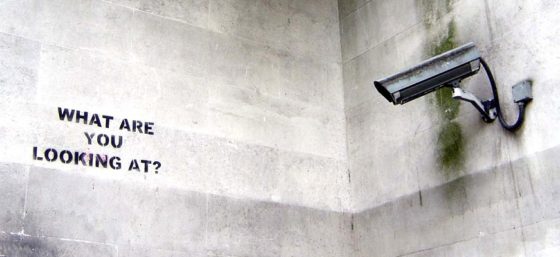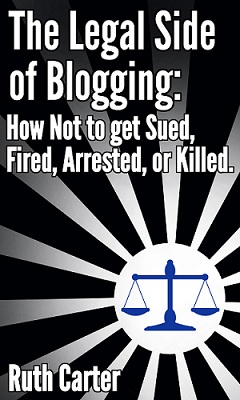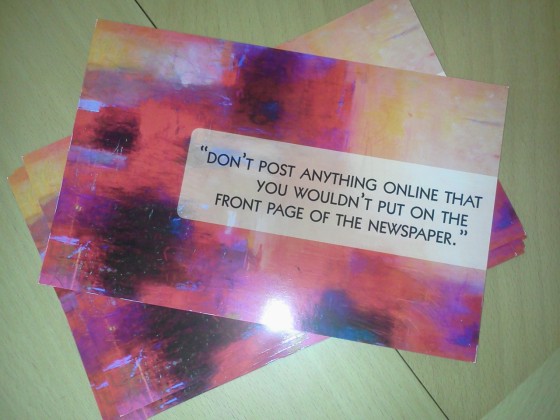
I regularly get messages from teens or their parents that say the kid was chatting online with someone they don’t know in real life. The person convinces the child to show their genitals or masturbate for them using their web cam. The person then says that they captured the video and threaten to post it online or send it to the kid’s friends, family, and/or school. Sometimes the person demands money in exchange for not sharing the video with others.
The variation of this situation I regularly hear about is from teens who send nudes or partial nudes to someone online, and then the person threatens to post them online. In one email, the teen said the person threatened to post the images if the teen refused to continue sending nude images of herself.
Ugh!! What is wrong with these people who are preying on kids like this? Don’t coerce children into creating and sending child porn.
These situations usually involve 14, 15, and 16 year-old kids – of all genders. When they reach out to me, they are petrified. They’re afraid they’re going to be humiliated. They’re afraid they can’t ask for help from an adult in their life. They’re afraid of what they’re parents are going to say if they find out. They’re afraid they’re going to get into trouble.
I wanted to share a few thoughts so hopefully other teens don’t have to go through this situation.
You’re Not a Bad Person, Kid.
If you’re a kid in this situation, you’re not a bad person. You made a mistake, hopefully one you won’t have to repeat again.
Whenever you send a nude image of yourself, regardless of whether you’re sending it to a stranger on the internet or texting your romantic partner, there’s always a risk that the images could fall into the wrong hands. For the rest of your life, whenever you choose to send nude images of yourself, assume they’re going to be seen by your family and friends and/or end up online.
Ask for Help
No one should have to deal with this type of situation by themselves, especially a kid. Reach out to a trusted adult in your life – a parent, a friend’s parent, a teacher, a coach, even the police. You can always call the non-emergency number for your local police department to discuss your options, or ask a friend to do it for you.
It may be hard to know what the right thing to do is in your situation. You always have the option to wait and see if the person follows through on any threats they’ve made. If you tell them to leave you alone and they comply, that might be the end of it (though they now have nude images and/or video of you).
You also have the right to report the incident to law enforcement, request a restraining order from the court, or file a civil lawsuit depending on your circumstances.
Legal Implications – For Both Sides
Given that these are situations that may involve the creation and sending of child pornography, there are many potential legal implications, including some for you.
Depending on the rules of your state, by taking nude pictures of yourself or performing live on camera, you may have participated in the creation of child porn. The same law would apply to someone who voluntarily sends a nude image of themselves to their significant other. Some states have lower crimes for dealing with the situation where the person in the photo is also the creator.
The perpetrator, the bad actor, could be facing many of legal accusations:
- Requesting nude images or performance by video: Solicitation
- If two or more people are in cahoots to get nude images from kids: Conspiracy
- Creating screenshots or captures from your performance: Creation of Child Pornography
- Keeping the photos and video you provided: Possession of Child Pornography
- Threatening to share the images with others: Revenge Porn
- Demanding money to keep the person from sending the images with others: Blackmail/Extortion
- Sending the photos and video to others or posting them online: Distribution of Child Pornography
There could be other legal implications in addition to these. As always, check your local laws for information pertinent to your specific situation.
Perpetrators Deserve to be Punished
People who prey on children like this deserve to face the consequences of their actions. If the person is outside the U.S. or if they created a fake account, it may be difficult to pursue the person. You always have to contact the police to file a report. Even if they can’t catch the perpetrator based on your case, the person may do it again to someone else, and the information you provide could help.
I regularly talk with kids who say they don’t want to report the situation to the police; they just want the person to stop. One way these perpetrators try to avoid punishment is by relying on the victim to be too afraid or ashamed to report them. Whether you report this person or not is your decision.
I was pleased recently when I saw that YouTuber Austin Jones pleaded guilty to child porn after he allegedly solicited explicit videos from 14 and 15 year-old girls using Facebook Messenger and Apple’s iMessage services. He even alleged told them to send these videos to prove that they were his fans.
Eww! Eww eww eww! People like this are disgusting!
He’s scheduled to be sentenced this May and could face at least five years in prison.
Thanks for reading this post. If you liked this post and want to know more about my work, please subscribe to the Carter Law Firm newsletter where I share behind-the-scenes information and readers get exclusive access to me.










